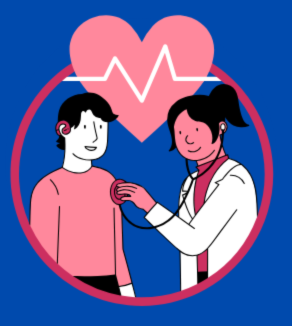Amidst the worldwide health crisis, COVID-19 has manifested as an intricate and diverse disease. Even though they are frequently connected to respiratory symptoms, a growing number of people have mentioned that headaches were a major aspect of their COVID-19 experience. In this blog article, we examine the nature, frequency, and possible underlying causes of COVID-19 headaches.
Recognizing the Origins of COVID Headache:
The severity and duration of COVID headaches vary greatly, from moderate discomfort to excruciating and ongoing pain. These headaches are a prominent feature of the virus’s varied symptomatology, appearing at any point during the infection, including the asymptomatic phase.
Headaches are a common symptom among COVID-19 patients, with a prevalence that varies from 6% to 63%, depending on the population studied and the severity of the illness, according to studies. The fact that COVID-19 headaches can appear alone or in conjunction with other symptoms highlights their importance as a possible infection indicator.
Causes :
There are some possible Underlying Causes of covid headache.
Research is still ongoing to determine the precise mechanisms causing COVID-19 headaches. Many theories propose that the virus may directly affect the central nervous system, causing changes in blood flow and inflammation that aggravate headaches. Furthermore, the virus-induced immune response may contribute to the development of headaches.
Handling and Alleviation:
In cases where COVID-19 headaches are present, symptom management becomes essential. For milder cases, adequate rest, water, and over-the-counter pain relievers may help. To rule out any underlying issues and receive the proper care, people with severe or ongoing headaches should see a doctor.
Long-Term Effects:
As the complexity of COVID-19 is still being uncovered, more and more focus is being paid to the virus’s possible long-term effects, also known as “long COVID” or post-acute sequel of SARS-CoV-2 infection (PASC). Research into how headaches fit into the overall picture of long-term COVID-19 effects is still ongoing.
Treatment for Covid headaches
The main goals of COVID-19 headache treatment are symptom management and alleviation. The following are some broad suggestions:
- Rest and Drinking Water:
- Make sure you get enough sleep to aid in your body’s healing.
- Drink lots of liquids, such as water, herbal teas, and clear broths, to stay properly hydrated.
- Nonprescription Painkillers:
Headache pain can be relieved with over-the-counter pain relievers such as ibuprofen (Advil, Motrin) or acetaminophen (Tylenol). - If you have any questions or concerns about your pre-existing conditions, speak with a healthcare provider. Otherwise, abide by the suggested dosage instructions on the medication package.
- Cold or Warm Compress: You can reduce headache pain by placing a cold or warm compress on your forehead or the back of your neck.
- Maintain a consistent sleep schedule to make sure you get enough sleep.
- Keep your diet well-balanced and refrain from missing meals.
- Control Your Stress:Use stress-relieving methods like yoga, meditation, and deep breathing.
- Establish a serene and quiet space to aid in reducing stress.
- Seek Medical Attention: It’s critical to get medical help right away if your headaches are severe, persistent, or accompanied by other worrisome symptoms.Speak with a medical expert to get specific guidance and to rule out any underlying issues.
It’s crucial to remember that each person may react differently to treatments. Any treatment plan should also be reviewed with a medical professional, particularly if you are taking other medications or have pre-existing health issues. If you think you may have COVID-19, heed the advice of medical authorities and seek advice from a professional for advice that is specific to your case.
